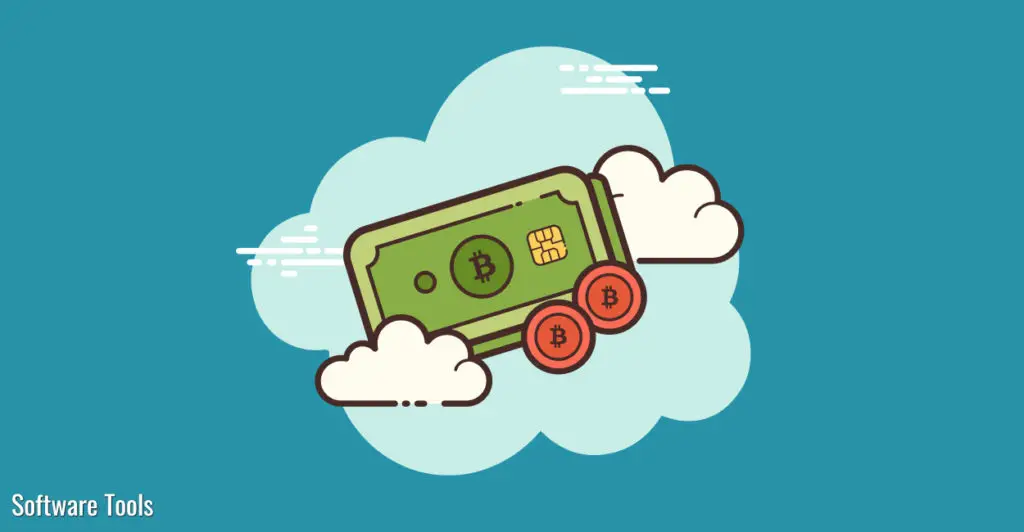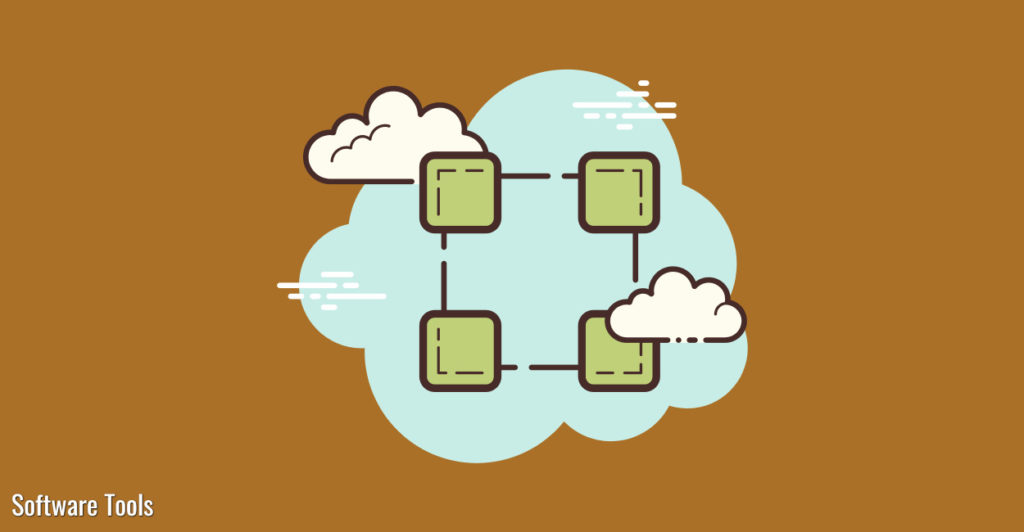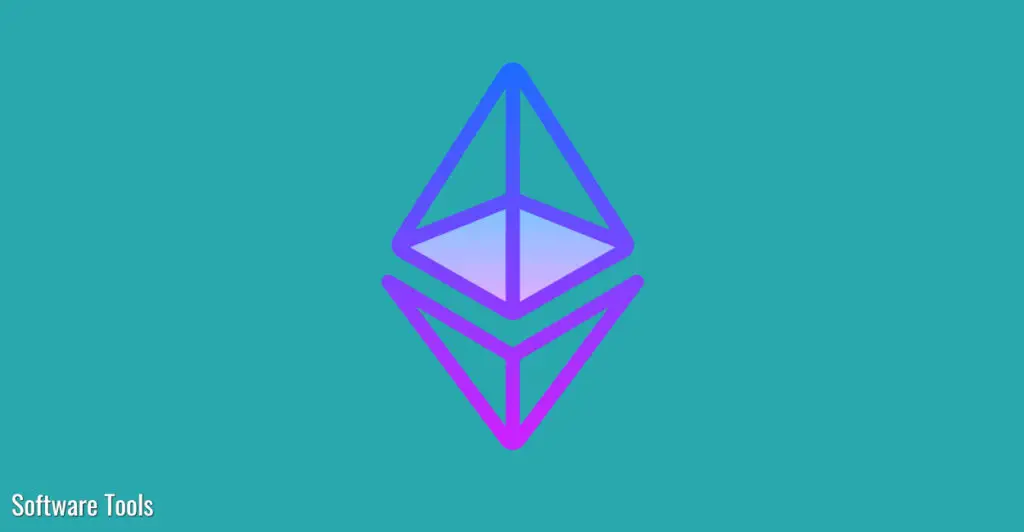With the heading, the subject is quite clear to you.
Without a shrink of doubt, Blockchain technology, ever since its invention has been the one with the right kind of potential to change everything. Don’t you agree?

In addition to that, it also is light on the pocket and saves a lot of money. Who doesn’t like saving money!
Furthermore, with Blockchain, there is no hassle of maintaining records, and neither there is a need to maintain the regular pieces here and there. Blockchain has been around since 2013 when many few of us actually knew anything about it.
Well, honestly, we have always been conscious around this subject. It often becomes difficult to understand how and where to get started. I get you because it was very recently that I tried this application wherein I invested in a couple of cryptocurrencies.
It is fine if you don’t have knowledge on the subject or are skeptical about where to start, we are here for you. I personally do regret selling my bitcoins early. Only if I had known what the future planned, I would have been sitting with millionaires, having a cup of nice coffee! Weeping, BRB.
Also, are you confused about whether or not you should in cryptocurrencies now? Or what the future holds for blockchain and cryptocurrencies? Hold on to those doubts because we have got you covered.
Blockchain brings a huge opportunity for the people. It is more like a transactional method or a bank statement that keeps all the records of the transactions you make through bitcoin.
Keep reading to unfold the mystery and understand every tiny bit of detail on Blockchain. We promise by the time you finish reading it, your head will contain every bit of knowledge about Blockchain which you can share with people who are unaware. Or Hey! Just share this article with them *Wink* Either way, the choice is yours!
Sticking to Basics – What is Blockchain?
Blockchain can be referred to as a database management system. You must have heard of the term Distributed Ledger Technology or DLT, they are both the same.

In general, it uses the most simple and open mechanism to track all and every transaction that you make through bitcoins. However, just a formal note, these transactions are not only related to crypto but anything like your medical bills your home loans.
This secure and open process of transactions ensures a high-level transparency and establishes trust.
Let us put it this way.
Consider a digital ledger that is made up of blocks. All these blocks are connected with one another to build a chain. So, if you undergo a transaction, all the transaction details will be automatically added to the blockchain in a form of a new block. Therefore, consider every transaction to be a block. Once a block is ready, there is no way you can make any changes to it.
Every time you make a transaction and a new block is created, it automatically fixes itself to the end of the chain. This in turn results to form a record of transactions.
On another note, Blockchain is not governed by a centralized mechanism. So, there is just one party that controls the whole process. Everyone who is a participant in the network is given the designation of the node. Each and every node in the network has control over the digital ledger.
Therefore, whenever you make a transaction, every node in the network is required to authenticate and approve your transaction for it to settle through.
Also Read: Ultimate Guide to SaaS
Working of Blockchain
As we now know that Blockchain is decentralized. Therefore, it is not like your computer that handles the database system. The blockchain uses a distributed structure and thus, many computers keep their data at one time.
These records are often referred to as ‘distributed ledger’ and every user in the network has access to a copy that resides within the ledger.
Every time, you add a transaction, a block is added to the last added block. The technology used is cryptography and the sequence that gets created is unbreakable and strong.
Now, one very important thing to note about these new blocks is their authentication process. It is indeed important for every block to undergo an authentication process. To do so, different computer systems confirm them, and then unique keys are designated to each of these blocks which will always be required when you are trying to access these blocks.
Wondering what happens if you don’t use the unique key?
Well, first of all, there is evidence of tampering and second, your attempt is happily rejected. So, yes, that is the level of security we are talking about in blockchain.
Blockchain and Distributed Ledger are not the same things, in case you are wondering. Blockchain could be a digital ledger but in no way, it is possible for every distributed ledger to be a blockchain.
Types of Blockchain
Public Blockchain
There are different types of Blockchain technology available for people to make use of it. One of them is Public Blockchain.
The name itself is self-explanatory. This network of blockchain is easily accessible and open for everyone. If you have any query regarding public blockchain, you can hit them up, you don’t need any ‘permission’. All kinds of validations are made for transactions that undergo through the public blockchain.
So, as blockchain users, we have all the rights to download and run the nodes on the device we use. Parallelly, anyone can also add any blocks to their chains and can keep an eye on their present status. What attracts the public is a characteristic that lets users join the network in the most convenient way that there is.
Also, there is no maintenance that one has to put through for the systems and servers. This is one reason behind the reduced cost of decentralized apps.
Some of the blockchain networks that are currently leading include Ethereum, Bitcoin, Dash, Litecoin, and so on. All of these are public blockchain. Therefore, you can be a part of these networks, and use/send their codes.
Federated Blockchain
Next up in our block list is Federated Blockchain, also popularly known as Consortium Blockchain.
Well, it is very different compared to the public blockchain and the primary cause behind this is failed access to the ledger and the process of transactions. Not everyone can be a part of this blockchain and work around it.
However, the transactions that occur in Federated Blockchain are more private-centric than the rest. It is one reason why this network is better. Alongside privacy, scalability also is better if you compare it with the public blockchain. Also, Federated Blockchain has got a name because of how a group of leaders is behind its operations.
If you are a part of this network, then one thing you most definitely need to know is, no one can join the system and be a part of it if they don’t have the right level of permissions. Hence, it is mandatory that you have the required permission.
Federated blockchain does a pretty well job in wiping off data redundancies. People need to take care of their own documents. Furthermore, the costs for transactions in Federated Blockchain are less compared to the other networks.
Private Blockchain
A private blockchain network, as the name suggests, is governed and controlled by a single entity. This is a bit different than what happens in Public and Federated where the whole operation is set through a group of different organizations.
As the name says most of it, a Private blockchain network is not accessible to people always. They don’t get to audit or manage their database from time to time. However, for companies, it is just a matter of permission to get access related to the permissions they want.
Private ones are very different from public blockchains if you compare them. A private network is centralized completely. Also, there is a high risk involved with the private chain. However, the costs for transactions are less.
It has tons of advantages to offer which include handling documents in the most simplified and organized way. Example of Private blockchain network is Multichain and MONAX.
Features of Blockchain
Well, it is pretty evident so far how complicated can Blockchains be. I am sure you have questions and trust me; I am struggling here to answer every bit of the question that you might have. Also, let’s talk about some of the advantages of Blockchain and figure out the potential ways it could actually be beneficial to us.
Fast? Yes. Efficient? Yes!
Blockchain undoubtedly is the most fastest and efficient network out there. It is quite well known how dangerous it is to manage manual entries and how likely they are prone to errors.
For most organizations, the working pattern depends on their usage. Think of it this way. You are writing an article or preparing a cover letter, how many errors do you make in general?
This is exactly one primary reason why different records are effectively used by different organizations to handle their everyday task. Nonetheless, for organizations and networks that are huge, it is very common to have such an in-built system that will take care of such a copious amount of data.
Again, let’s illustrate this with an example. A typical vendor maintains a store and sells sweets. So, there is one record that maintains the sweets that he sells, there could be another that will contain the details of how much each sweet was sold, there could be a third that will consist of the sweets that stale and incurred loss, and so on.
On the end note, maintaining multiple records like this is unmanageable, and more than that, the time and effort you have to put through to just establish them is more hectic. With blockchain, the whole process is simply a cakewalk. This means, all the records that get generated are instantly verified.
This is where the speed factor comes in since it helps in inducing a lot of benefits too. Blockchain doesn’t involve any third party to be a part of the process. So, if you see it this way, it is quite feasible with Blockchain. The overall process of delays gets cut down short. All the tasks are almost instantly taken care of and looked after leading to no unnecessary delays.
There is a reason we call it ‘Smart Contracts’
When we speak of blockchain, decentralization and smart contracts automatically come into the picture. Speaking of now, smart contracts have turned out to be a great asset for blockchain and also, kind of the most powerful weapon.
Now, let us know what exactly are smart contracts and how they work!
Smart Contracts follow the ‘’if/when’’ approach. All of these are specifically coded and then there are computers that are behind the execution of what is written in the code. These actions could be anything. Starting from the release of funds to the parties to issuing a ticket or even can be about sending notifications, no one knows!
As soon as the transaction is over, the blockchain is updated with the latest fetched details and thus, a new block is added to the chain. This also brings me to add one more point, that these transactions are not viable for changes. The parties that are typically involved are the only ones who have legitimate permission to view the results.
In order to use digital contracts, it is extremely crucial that there is a trust-less flow to facilitate the process and with smart contracts, you get the accessibility. It helps in creating digital contracts that are available to use for any application and the best part of it is, it will not require third-party involvement.
Typically, smart contracts make use of blockchain. On a set of conditions that are already pre-defined, automatic payments and transfers take place.
Well, who wouldn’t want every tiresome process to be automated? Smart contracts can even let you do that. You can pay your bills through smart contracts as soon as the threshold is exceeded or reached. The transaction will be released to the company and you don’t have to worry about a thing anymore. Also, the whole process will be verified by blockchain.
What sounds better than the concept of smart contracts, eh? No more worries about dues, no late fees, no more payment scheduling!
The more people start using smart contracts, the lesser would be the involvement of middlemen and other organizations. Since the information is equally distributed across all the different kinds of networks, one company can’t just have control over it.
This will also make it difficult for the government and the individuals who are currently in power to wipe sources down as the information is now available on different computers and networks.
Working of Transactions
Let’s consider this process and understand the working of transactions with the help of an example.
Suppose A wants to pay B a certain amount of money through bank transfer. A tells the bank about this transaction that is about to happen. Also, A and B are using the same bank. Now, the bank checks the bank balance of A and sees that A is compatible to perform a transaction and also has the required amount to do it but doesn’t update any database about this piece of information.
This, however, my dear friend is not the case in a blockchain network. It is also a database eventually. The only major difference here is, there isn’t a single party involved that is doing all the process and updating work, there are plenty of nodes too and they must all do it too.
Now if A wants to send 100 bitcoins to B, it needs to put forward a message stating the same thing to the network. This information is not added and updated in the blockchain straight up.
Different nodes that are a part of it must be notified about the happenings. Other pending actions also need to be looked after in order for the transaction to be completed.
Now, that the transaction is done and is successfully appended to the blockchain network, every node will be able to see it. Now, the next thing these nodes will do is update their data of the blockchain to display the latest results.
So, for A, it is no longer possible to send 10 more bitcoins to C since the network now knows that a transaction of a similar kind has already been made.
Blockchain doesn’t adhere to the concept of usernames and passwords. To prove that the funds are yours, public-key cryptography is used. Now, if B wants to receive the funds from A, it will need to generate a private key first.
A private key is nothing but a set of random, undefined, long numbers which no one can guess due to its complexity. But if B decides to share the details of the key with someone else, they will then have control over the same funds that B has control over. Therefore, B must not share his private key with anyone at all else he will not only lose ownership over his funds but will not see them any longer ( likely they are spent with whosoever he has shared the details with)
The best for B to do right now would be to get a public key made out of the private key. Now, B is free to share the public-key with anyone it wants because no one can now derive the private key, it’s practically impossible.
In other cases, on the public key, B could perform hashing to extract a public address.
Further, B can share the public address with A so that A is informed about the end destination of the amount. She now has the exact data on where she has to send the data. A can now prepare a transaction that will state about sending these funds right to the public address shared by B.
A can now make use of a digital signature to issue and prove that she is not spending funds that aren’t hers. However, A needs to generate the signature using her own key. No one now can stop A to send these amounts to B since her signature could be tallied with her public key and ensure that they are legit.
Leading Blockchain Platforms
Here is a list of some of the most leading blockchain out there. Since there are many cryptos that have made their place but having a closer look at the ones that are actually making a change right now is worth the shot, don’t you think?
So, hey! Keep reading.
Ripple
Ripple is an interesting blockchain. With Ripple, there is no transaction fees and everything is almost free.
The RippleNet provides accessibility to link banks and other modes of payments so that they are all in one place. The digital currency used by Ripple is known as XRP or Ripples and after Bitcoin and Ethereum, Ripple is by far the next one in line in terms of popularity. Ripples are very fast and also scalable compared to the other currencies.
So, are you planning to buy XRPs anytime soon?
Ethereum
Speak of the blockchain that completely turned the blockchain world upside down and you would hear Ethereum.

Vitalik Buterin, a Russian-Canadian termed Ethereum and it has continued to be in the limelight ever since. Also, very innovative.
Why and what makes Ethereum the success that it is now?
There are plenty of reasons some of them include its introduction of Smart Contracts, dApps, and DAO. For ordinary users like you and me, these features were starlit. This is one primary reason why Ethereum has so many use cases. Furthermore, Ethereum also has a friendly support community that always aims to provide customer support as and when required.
R3 Corda
R3 Corda has also managed to be in sync with the big bets. R3 is known for its revolutionary formation of the most talked-about platform – Corda.
Presently, Corda is not functioning with a crypto and nor does it have an in-built token of its own.
Also, there is more to it with Corda, it is a platform that is permission Blockchain type. Wondering Why?
This is primarily because it will help in adding restrictions to people who don’t comply with the Blockchain protocols. Therefore, having just explicit access to the network is not going to help as for most parts, your access is bound to be denied.
NEO
A grand entry with a big bang is what we will like to call Neo. Neo has proven to be effective in all ways possible. One of its finest achievements includes its ability to handle transactions in a jiffy.
Wondering how fast could Neo possibly be?
Let’s put it this way. Bitcoins are able to handle almost 5-6 and a maximum of 7 transactions in one second whereas NEO, the monger is capable of handling 10,000 transactions at once.
Nonetheless, NEO has also put forward an open challenge for Ethereum. NEO proves itself to be smart, young, and even faster than Ethereum is.
EOS
EOS has recently been in the market and is already been in place for its massive reputation. The three main and primary factors who EOS has been a personal favorite of many are – its usage, the flexibility it offers, and how scalable it is.
In addition to these EOS also has no traits of other abnormalities that Bitcoin shows off. Given the competition that we are witnessing, it is only for time to tell how far can EOS reach out.
Future of Blockchain
The way we now look at the world is completely different than we use to before the Blockchain came into the picture. Don’t’ you agree?
Presently, the whole world and the way the data is managed is changing and it is continuously going to change. Therefore, it will not be very wrong to say we could see a world that is free of technology. However, this is going to need time. People still need to have an understanding of the subject and how technology works in general.
Also, apart from this, it won’t be wrong to mention that Blockchain technology is going to change the whole way how the internet will work.
Taking, for example, the TCP/IP technology is now in place, and it took more than 30 years for people to understand how the technology actually works. Whereas, with blockchain, it is going to take much more time given how this technology will completely take off banks and other financial systems.
But, no one actually has seen the future, right? So, we never know what the future has in hold for blockchain technology either. Back in the 1970s, Video Calls were also a great deal and no one knew it would so highly be used in the 20s. Look at all those kids’ face-timing their friends.
Some questions that are likely to hit your heads are: –
1. How and what are the kind of changes blockchain will introduce us to?
2. How is blockchain technology going to change the world?
3. What effect will it have on our day-to-day lives?
4. Will the whole method of making transactions?
Investing in blockchain right now is a good idea if you have all the knowledge that you need on the subject. However, if you are still struggling with the topic, it is completely okay since it is a vast subject and needs a lot of time to understand. It could also be zillion years before Blockchain is actually accepted by the world.
It is completely fine to play around with blockchain. Give it time and most importantly, give yourself time to grasp the topic and to learn the details about how it can actually prove to be a good option for you.
Let’s wait for time to see how it goes.
Frequently Asked Questions on Blockchain
How can blockchain be used in business?
With blockchain, everything is secure starting from sharing of activities, records, and so on. All of these are done and followed through via an encrypted process.
The principle Blockchain uses if – Cryptography. With crypto, it is next to impossible to hack or misuse any kind of data.
What are the different kinds of data that Blockchain can store?
A block has the following elements: –
1. Previous Hash
2. Data
3. Hash
4. Nonce
Can Blockchain be hacked?
This is how all the data is secured and safe from hacks. Well, it would also not be feasible to state that Blockchain is immune to all sorts of attacks.
What are the key features of Blockchain Technology?
1. Decentralization
2. Security
3. Consensus Algorithm
4. Distributed Ledger
What does the term ‘Double-spending’ mean?
To get rid of a mechanism like this, crypto that works on blockchain makes use of a Consensus mechanism also known as Proof-of-Work.
This is the process that blockchain uses to help in the prevention of double-spending especially when transactions are made from more than one network.
Conclusion
Blockchain technology is just another milestone in the world that we are living in. It is a revolution that is almost available to make its way through everything.
The day is not really far when both i.e. the real and the digital lives of ours will fully collide. Blockchain undoubtedly is the next-in-line most brilliant change that we are about to witness.



